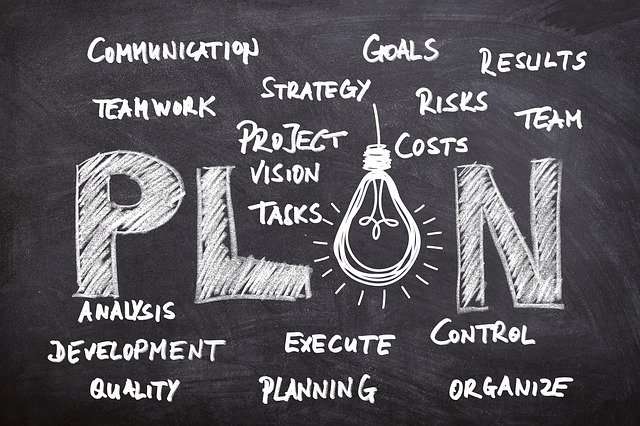
by Suellen | Meeting the Challenges, Vision and Goals
You may have heard so many people talk about goals that you are tired of hearing about the subject.
I’ve been there.
You may be like me – and have a very busy life. When our lives contain many demands, we can be run by what’s known as the “tyranny of the urgent.” All of these things that you “have to do,” demand all of your time.
At the end of the day, you are tired and worn out. You just want to relax a little.
Yet there’s another saying. “If you don’t know where you are going, you might wind up some place else.” In other words, You and I need to have goals. Targets to reach for. Points of focus for our energy
So what are your goals? Do you have any? Or is that part of the problem?
Goals are important at every age; they give you something to focus on, challenge you, and give you a feeling of accomplishment when you succeed at reaching them. Improving your mindset will help you reach your goals, but first, you have to know what they are.
Take out your journal or a sheet of paper and a pen and write down your top five goals for your life. Big or small, it doesn’t matter. Write down the goals that YOU want to reach, not that society expects you to want. Pray about it. These are very personal.
When you’ve finished, look at the list and prioritize it. Take your top goal -the most important one you want to accomplish -and make a plan to reach it. It doesn’t matter if this goal is big or small, whether it’s something as big as starting a business or as small as putting together a 1,000-piece puzzle. Make your plan and incorporate it into your mindset and self-improvement program. This is now what you’re striving for.
But what if your page is blank? What if you don’t know what your goals are, or you don’t have any? Well, your task now is to come up with some. Again, these have to be goals that are unique to you, not to the broader society. If you don’t want to ever own a house, don’t make that a goal.
Take out another sheet of paper. Close your eyes. Now imagine that time and money weren’t an issue. What would you do? You can do anything, anything in the world. Write down the first five things that come to mind. Next, write down five things that you enjoy doing and would like to do more of if you could find the time.
Compare the two lists. You’re probably going to find a significant amount of overlap. These are the things you really want. This is where your heart lies. Psalm 139 talks about your “unformed substance” which God put there. Many times your desires arise from that part of you . Your innermost being. Listen to that still small voice within you.
Select a few of these things -three is enough to start with -and turn them into a concrete goal. “Travel more” could become “Take a cross-country trip in an RV next summer,” for example.
If your goal is to write a book, start smaller. Plan to write posts online. Start a blog, or write on Medium.
Think how you can start working toward those goals.There are no beginnings that are too small. Every step will bring you closer.
Having goals is an important part of your plan to improve your mindset. You need the challenge and the effort to catalyze your mindset shift and personal growth. You also need them to live your best life. Working on your goals is a win-win!
Check out this Done for You Pack Set Your Goals. You can share these posts, graphics, and more with your clients.

by Suellen | Meeting the Challenges, Vision and Goals
We humans are an impatient lot. When we want to do, achieve, or get something, we want it today, if not yesterday. This leads directly to impatience and frustration. It leads many people to give up when they’re on the verge of success.
Success takes time. Achievement takes time. Learning a new skill takes time, even if it’s something simple. Have you ever watched a young child learn to do something you take for granted, such as learn to walk?
Success is halting, uneven, often looks like going backwards, and sometimes involves falling on your backside (or your face).
The same is true of doing more difficult things as an adult. It takes about 10,000 hours of practice to master a skill. That’s almost 5 years of full-time work! This is why it’s said that we overestimate what we can do in one year and underestimate what we can do in ten years.
This is where the One Percent Rule comes in. It allows you to make visible, satisfying progress rapidly without expecting overnight success. It’s a simple rule: when you attempt to do something, aim to do it one percent better than before. Or finish one percent more.
If you practice this rule and do so faithfully, before long you’ll have mastered the skill or finished the task. Perfecting something is hard; doing it 1% better or finishing one percent more of a task is relatively easy. It’s a goal you can see and reach almost immediately.
You can apply this rule to anything.
Are you trying to learn to live by a budget? Aim to do 1% better each month.
Are you trying to increase how much you save? Increase it by 1% per month until you reach your ultimate goal.
You’ll see the progress every month but not feel a lot of pain from it.
Do you want to improve your self-talk? Set a goal of achieving 1% improvement every week or month.
Trying to start and keep an exercise routine? Once you get the habit down, aim to increase it by 1% a week.
Using a software program to learn a new language? Make your goal completion of 1% of the program every time you log on.
The uses of this rule are infinite. It’s one of the best ways to improve your mindset and achieve the personal development you want. It will fulfill your brain’s desire for immediate gratification and simultaneously fuel your long-term success.

by Suellen | Meeting the Challenges, Vision and Goals
O.K. We don’t like to hear this, but it’s true! Growth happens outside of our comfort zone.
If you want to experience personal growth, any growth, but particularly massive growth, you’re going to have to get out of your comfort zone. You can’t grow while you stay within your comfort zone.
Hint: They call it “comfort zone” for a reason! Makes you think of a big pillow, a warm blanket, and a mug of hot chocolate.
When you’re in your comfort zone, you’re comfortable. You may not be happy, but you’re not going to be totally miserable. And you’re static. There is nothing to challenge you or push you. Things are rolling along as normal, and you’re caught in the normal day-to-day flow of life.
This is a fine state of affairs if you’re happy with life, but what if you’re not? What if you want to grow and change and find a better way to live?
In the latter case, staying in your comfort zone means stagnation. It means life passing you by until one day you wake up to find yourself too old to live the life of your dreams and you wonder what happened. If you don’t want this to be you, you need to step outside your comfort zone.
Discomfort isn’t pleasant, but it’s where growth happens. Your brain and body have to respond to challenges (discomfort) and this catalyzes new growth and development. You can cause personal development and deliberately change your mindset by challenging yourself. The bigger the challenge, the bigger the response, and the more personal growth that happens.
That doesn’t mean you should schedule skydiving lessons for next weekend, however! Going too big too fast can also backfire on you. This is particularly the case if you’ve stayed in your comfort zone for a long time. Start small. Take a new route to or from work every day for a week. Try a new restaurant. Shop in an unfamiliar store.
Next, make a list of experiences you would like to have and things you would like to do. Start marking them off. Plan these things, commit time and money to them, and even tell other people you’re going to do them so you’re less likely to back out. Start planning for the biggest thing on your list.
Mark had always dreamed of rafting through the Grand Canyon. So one day, he decided to stop just dreaming, and start doing.
First, he planned the trip. He booked it for a couple of years away. So it was on his calendar and his deposit was paid, He was cammitted. In 24 months, he was going to be floating down the Colorado River.
That was a big, scary challenge. Certainly those “what have I done?!!” voices started. Yet he was committed.
What next? Mark scheduled rafting lessons. He went on local day trips. Then short camping trips. When the time came, he was ready.
You can do this no matter what the goal. Think about some big dreams you have for your internet or writing business. Then commit to them – maybe by telling others. Then plan for a year or two ahead. And begin the preparations you need to do to make this happen.
Step outside your comfort zone, challenge yourself, and change your life!

by Suellen | Meeting the Challenges, Vision and Goals
Some people think that our mindsets were set at birth and they can’t be changed. But that is a myth! Not only is this a myth, but it can be dangerous, as it belies the potential for human change and personal development.
Another myth is that a growth mindset is good and a fixed mindset is bad.
In this blog post we want to expose those myths. Your mindset is definitely changeable! And having either mindset can be good.
Not only is your mindset changeable, but it changes throughout your life, sometimes rapidly, and sometimes slowly. You might not have noticed you attitudes changing, but over time we change. We might not pick up on our own inner changes.
Everyone’s mindset is a combination of fixed and growth mindsets, and it’s the ratio of these two that changes throughout life. You can become more or less open to risk and more or less believing in the power of hard work and dedication to reach goals. You can also become more or less convinced that intelligence or morality are inborn versus developed attributes.
These are just examples, but every aspect of your mindset is equally open to change.
What drives these changes? The experiences you have in life are the primary reason, and how your mindset shifts is due to your personality. The same experience will have different effects on different people.
Most people shift more toward a growth mindset as they go through life, but there are exceptions. Trauma and other negative events can push people toward having more of a fixed mindset.
All of this is assuming that all the changes your mindset undergoes are unguided and happen naturally.
You can also deliberately and consciously change your mindset. You can focus on the parts of your mindset that you don’t like and change them.
Helping you do that is the purpose of this program.
Deliberately changing your core attitudes isn’t always easy, but it can be done.
During this challenge, pick one aspect of your mindset you would like to work on. Perhaps it’s embracing new things or working through frustration.
Then you can work on that one thing. There are some aids we’ll share which can help your development.
Commit your woks to the Lord and your plans will be established. (Proverbs 16:3)
Affirmations (some call it confessions), journaling, and meditation (especially on God’s Word) help you succeed in this. There are many verses in Proverbs which address habits and personality traits. These are terrific for meditation and affirmation.
When you’re satisfied with your progress in one area, you move on to the next.
Don’t buy into the myth that mindset is static. Not only can it change, but it does change throughout your life, whether or not you purposefully try to change it. Why not guide these changes and help them along so that you can grow into the best possible version of yourself.
Today, think about one aspect of your mentality you want to change. That’s what you should work on first.















